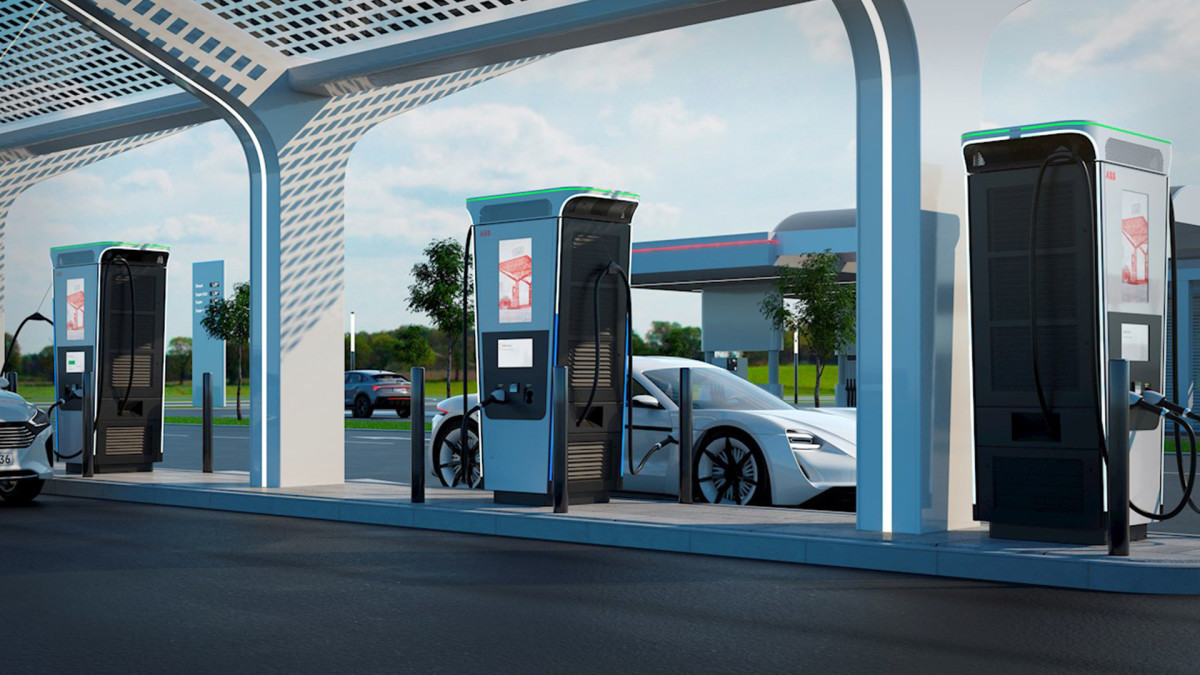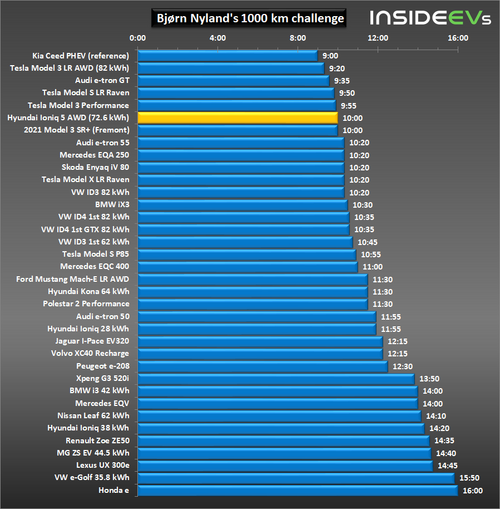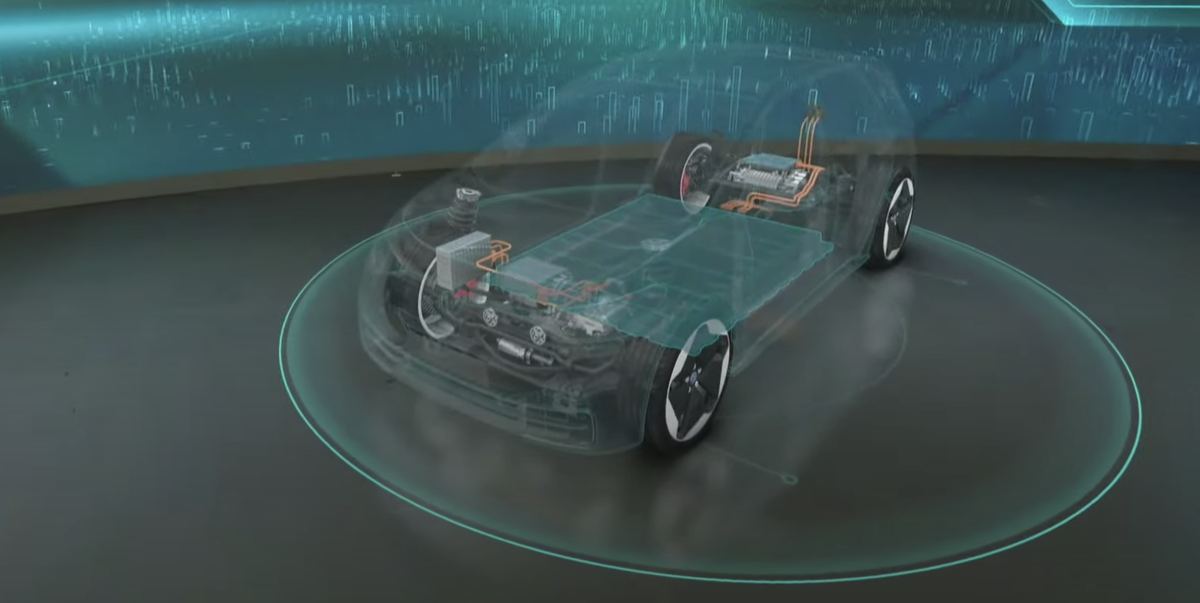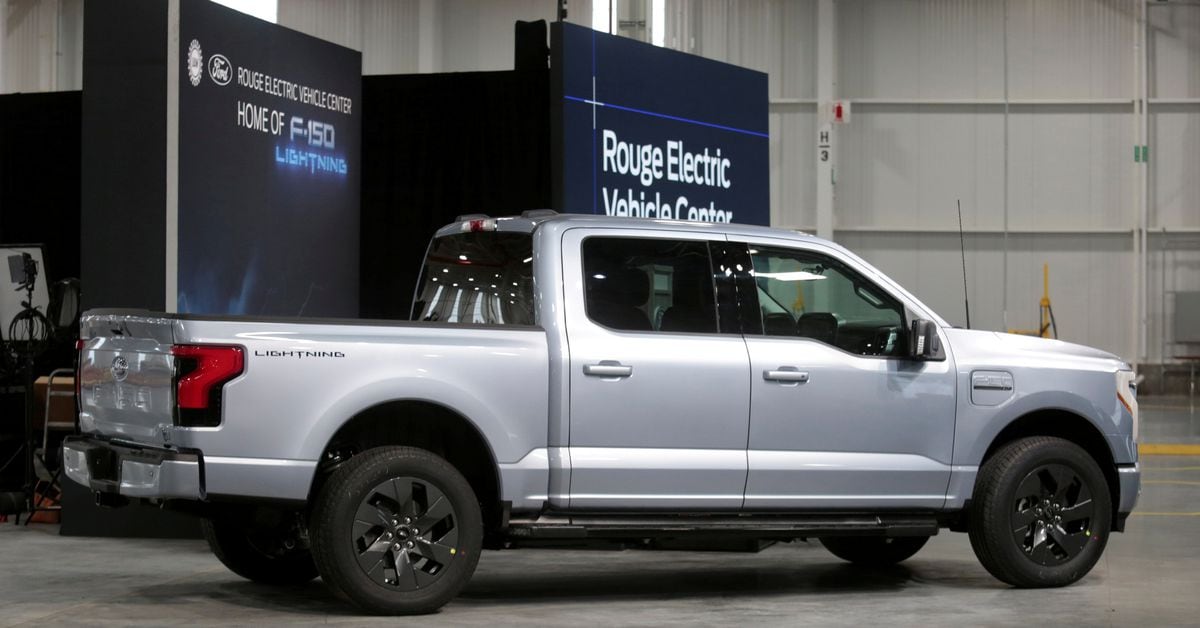
ABB Unveils What It Calls Fastest Electric-Vehicle-Charging Station
ABB says its Terra 360 station can charge up to four electric vehicles at a time and provide a full charge to any EV within 15 minutes.
 www.thestreet.com
www.thestreet.com

 www.thestreet.com
www.thestreet.com
The newer batteries can take such a charge, and for lesser batteries the battery and charger handshake to get to the right power level.Can existing EV's handle being juiced up that fast? A system designed to spend a work day being charged suddenly gets power fifty time higher... I can see a lot of exploding batteries.
Beamed power from Space, my dear Scotty
Most DC fast chargers comfortably beat the 7 hour mark already, though Tesla's Superchargers are still the fastest and most ubiquitous.*IF* they can pull this off, this will go a long way to reducing the important objections to EVs. I recent put 800 miles on my car in a one-day trip; if i had to spend seven hours charging up after every 300 miles, I would have spent more time charging than driving, and it would have turned into a multi-day nightmare requiring motel stays.
Of course then the problem becomes "how do we provide power to the charging station."
Can existing EV's handle being juiced up that fast? A system designed to spend a work day being charged suddenly gets power fifty time higher... I can see a lot of exploding batteries.
That's not how EVs work. Every vehicle battery system and charging system is designed to negotiate the charging current before charging starts, and to continue negotiations during charging. This means the current supplied by the charger will vary during the charging process: charging starts slow, then ramps up to the highest current sustainable by the battery, and slows down again when the battery heats up or gets close to full.
*IF* they can pull this off, this will go a long way to reducing the important objections to EVs. I recent put 800 miles on my car in a one-day trip; if i had to spend seven hours charging up after every 300 miles, I would have spent more time charging than driving, and it would have turned into a multi-day nightmare requiring motel stays.

it does, but on a new 100K Tesla, it will be on a 3 year lease, so the first 'owner' isnt going to care.My understanding is that this rapid charge option is being pushed, yet it destroys batteries much faster. There is also a lot of talk about electric cars giving charge back to the grid during the day. Excuse me but, give back charge to the grid when they are needed to go to and from work etc? Interesting theory but the zero sum option is not a reality yet.
I cannot believe some of the uninformed replies here. Your EV will have an advanced solar panel on the roof.
.....and those super electric cars are only a small percentage of the vehicles out there. Unless of course you think those of us who cannot afford a brand spanking new electric supercar should get back into our places and learn to walk everywhere and leave personal mobility to those with enough dosh to pay the electric way.
The grid needs those upgrades regardless of the state of the vehicle market. Ceasing EV development won't enable Texans to run their AC any longer than they can today.My problem with electric cars is not the cars but the grid.Without major
improvements , the grid can't handle the drain and will crash. This will
leave everyone in the dark .

 www.thestreet.com
www.thestreet.com
Or support distributed networks with solar panels and batteries (or just the batteries in the vehicles themselves...Moose is correct on the grid . It needs upgrades and added security.
I am afraid they have the horse before the cart. Take care of the grid first
before the rush to replace all cars with electric ones by a certain date.
Unless of course you think those of us who cannot afford a brand spanking new electric supercar should get back into our places and learn to walk everywhere and leave personal mobility to those with enough dosh to pay the electric way.
Those are FEATURES not bugs when it comes to driving adaptation.Don't forget the added cost of either an entire solar powerplant nailed to the roof of your house, or the fees added to your rent to add those solar panels to the roof of your apartment, or the added property and local sales taxes to pay for the added electrical infrastructure in your neighborhood/town/city, or the additional state income taxes to pay for the massive upgrades to the grid to bring in 1.21 jigawatts from the wind turbines out in the boonies.
In Europe, most new bus purchases are Electric, for city transport an E-Bus is perfect. Intercity, not yet, but trains are mostly electric now, in Europe.I thought we were supposed to live in a classless society.
Public transport cannot cope with the current demand, increasing demand will do nothing to help that.
There are alternatives to going fully electric that can use the current infrastructure and get results before a fully electric society could ever do. This is supposed to be helping the ecology.
How am I supposed to get to hospital for treatment which is needed rather than a 'like to have' option when there is no public transport to do the job?
Are you really suggesting that it's desirable to put down the poorer among us even further?
The same way they buy ICE vehicles now: by waiting until EVs appear in the second-hand market, which is just a matter of time. You're also ignoring what's happening already in the new EV market: the first electric cars on the market were $100k. Now you can get one for 1/3 that, and the price keeps dropping.How on earth will 'the poor' be buying a Tesla? At any age?
The same way they buy ICE vehicles now: by waiting until EVs appear in the second-hand market, which is just a matter of time. You're also ignoring what's happening already in the new EV market: the first electric cars on the market were $100k. Now you can get one for 1/3 that, and the price keeps dropping.How on earth will 'the poor' be buying a Tesla? At any age?


I think the big car manufacturers know the game is up, you would as a uk company buyer be nuts to buy new ICE cars, and their lease costs must be going through the roof, as residuals will plummet. Everyone wants an electric, just cant afford them, or find them....On some meta level, governments and elite are not driven by some meta morality, but mostly by "tactical morality" with immediate utility. Compared to say, fumbling a poorly thought out covid plan or endless foolishness this issue really doesn't make the cut except in its ease of comprehension.
On the cost side: the entire electrical vehicle supply chain is drained against massive demand and price can not go down until the demand is fulfilled. There are things like tens if not hundreds of thousands of preorders on vehicles not to be delivered in years. Existing models have delivery dates a quarter or three down the line. Dealers are putting 10k or more in mark up. Year(s) old vehicles are costing more than new vehicles.
People have often complained that Teslas don't have interiors fit for its price range, and they are right as Tesla is built cheaply with budget car levels of price cutting, and vehicle margins is like 25%, much better than traditional vehicles at 10% and even lower for cheaper cars and wait time is still months. This kind of high margin goes up the supply chain all the way up to battery suppliers and mines. (this is why vertical integration is considered attractive)
A 10x scaling of the Li-ion battery industry simply can not happen overnight. Billions of investment have been put in the pipeline not to produce products until ~2025.

VW Expands EV Offensive with Plans for Six Battery Factories
At its Power Day event, Volkswagen said it plans to have all the factories operating in Europe by 2030 and will also be expanding its global charging networks.www.caranddriver.com

Ford, SK to invest $11.4 bln to add electric F-150 plant, three battery factories
Ford Motor Co and its Korean battery partner SK Innovation will invest $11.4 billion to build an electric F-150 assembly plant and three battery plants in the United States, accelerating the U.S. automaker's push into electric vehicles.www.reuters.com
Even Tesla's own investment in battery production has not reached production vehicles.
---------
Prices may not come down much until ~2027 where all those factories complete and ramp up to saturate higher margin markets, unless Chinese (with some crazy scaling plans announced: that is where the big battery producers are already at) managed to export in a big way before that.
A G=WIZ is not a car, it's a bluddy death trap.Cheapest electric car in the UK today, is £2100 with new batteries. a G-Wiz. So not quite £500 but getting there.
A 10 year old Nissan leaf is £5000, so we are getting there.
